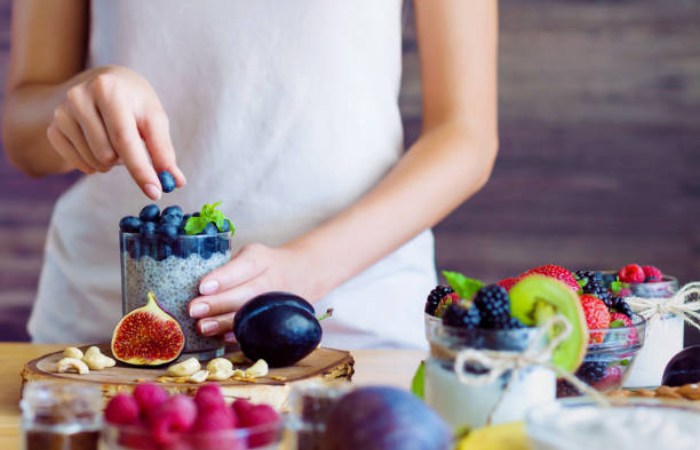Half a million people in the UK signed up for Veganuary in 2021 – a new record. But when we look beyond our plates and into our beauty bags, we see a massive gap in awareness. What’s the difference between vegan and cruelty-free? If a product is branded as being made from natural elements, does that make it vegan? Does veganism guarantee sustainability? And what the heck is “plant-based”? From the perspective of a curious newbie, I hope this post gives you some insight into the murky world of vegan beauty.
What Is Vegan Beauty?
Surprisingly, there is no legal definition of “vegan” in the cosmetics industry. Unsurprisingly, vegan cosmetics are products without animal ingredients, such as gelatin, beeswax, egg whites, or honey. They also do not contain animal derivatives such as hyaluronic acid derived from rooster combs (what mad scientist came up with that?).
Regarding beauty products, “vegan” doesn’t always mean that the product is not tested on animals (although many products are both). Unfortunately, many general brands still test their products and ingredients on animals – be sure to check out the brilliant Cruelty-Free Kitty for more information on cruelty-free beauty brands, or look for the “Cruelty-Free” or “PETA Approved” logos for accreditation.
Luckily, there is now a vast selection of cosmetics that do not hurt animals. While many complex factors can be a barrier to adopting a completely vegan diet, I believe that makeup and skincare can be small, simple things to start with.
Does Vegan = Sustainable?

Short answer: no. Just because a product is described as vegan doesn’t mean it’s sustainable or ethically produced. This is similar to “vegan fashion,” a term used for clothing, shoes, and accessories that don’t contain wool, fur, leather, silk, feathers, or exotic skins. In fashion, many substitutes for these products end up being made from petrochemicals, which cause further harm to the environment and animals due to microplastic pollution and climate change. Not to mention that cruelty to the people who make our clothes isn’t factored into vegan branding. The same can be said for vegan beauty products, many of which aren’t necessarily all-natural and eco-friendly, especially when it comes to plastic packaging.
It’s also important to note here that additives on ingredient lists can be challenging to understand and change regularly. If you’re unsure of any product’s vegan credentials, it’s worth checking with the brand or retailer. As with any form of greenwashing, as consumers, we have a lot of power to hold brands accountable. Asking the right questions is a great place to start.
Which Beauty Brands Are Vegan?
I’m pretty overwhelmed by the sheer number of beauty brands that pop up daily on my targeted Instagram and TikTok ads telling me their product will erase acne scars, reverse aging, and plump up your brows or lips. This constant stream of messaging that feeds on uncertainty is a recipe for mindless overconsumption. So, aside from the ethical benefits of avoiding animal products. I like the idea of limiting my selection in the Boots aisle to keep things a little more streamlined. With that in mind, if you need guidance on vegan skincare or vegan makeup, here is a win-win brand.
My Vegan Beauty Routine
To start with the PSA. I learned everything I know about beauty from my much more knowledgeable friends, so I take my advice with a grain of salt. However, I do have four critical criteria when buying anything beauty-related that I think you might find helpful:
- Affordable: It rarely costs more than £15 because looking good doesn’t pay my rent.
- Comfortable to wear: nothing fancy that goes to waste; simple, timeless products that suit my skin tone/type and busy schedule.
- Minimal footprint: avoiding excess packaging and international shipping wherever possible
- Promising reviews: I don’t mind marketing hype. I want to know if the product does what it says on the tin.
Regarding skincare, I start with The Ordinary Glycolic Acid Toner and Salicylic Acid Mask to correct uneven skin tone. I also use Florence By Mills spot stickers at night because even in my early twenties, I’m prone to regular hormonal breakouts (thanks, PCOS). After moisturizing, I always use a primer because otherwise, the foundation seems to melt into my pores (just me?). The Ordinary’s silicone primer is generally very reliable, and combined with its high coverage foundation, I’m well-suited for a full day at work or a night out. Plus, it’s always hard to find an extra pale Celtic-friendly shade without a yellowish undertone, which is why I’m a fan.
For makeup, I’ve been using e.l.f for a long time now because it’s simply good value for money. Their flawless concealer is perfect for dark circles under the eyes, and I’m a big fan of neutral-toned eyeshadows. Subtle brow gels and sheer lipsticks. The final step is to apply some BarryM Glow Beam highlighter and spray e.l.f.

